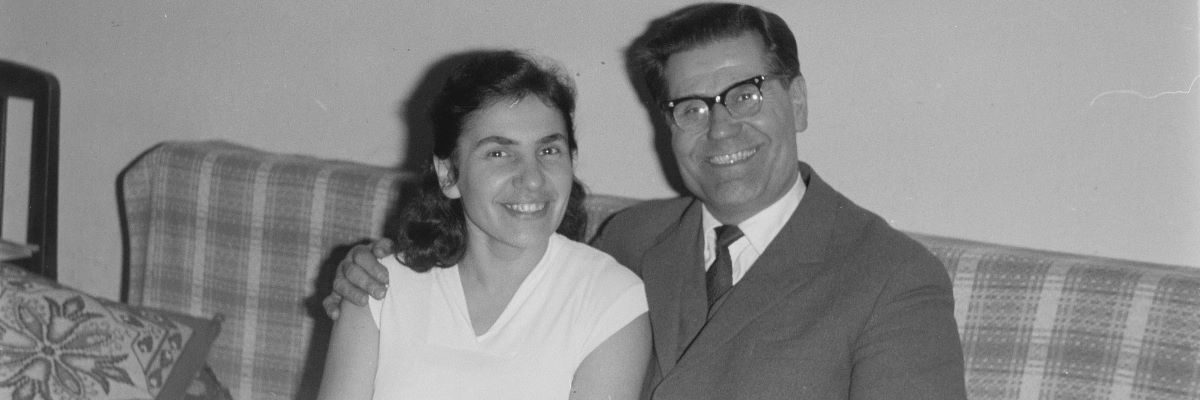Piotr Łachtiuk, actually Pantelejmona Bondarczuk was born on August 9th 1911 (documented as August 9th of 1907) in Żabokryki Wielkie village (presently Dowgaliwska) in multi-child Ukrainian peasant family, the son of Jeremiej and Feofanija, nee Krajewska. From an early age he was interested in music, he sang in a church choir. He was a student of the private High school in Krzemieniec, in Wołyń, where he also studied guitar and accordion. He finished high school with top honours. In 1938 he began studying Ukrainian Literature at Józef Piłsudski University in Warsaw (presently University of Warsaw).
The Slavic literature professors during that time were Roman Smal-Stocki and Iwan Ohijenko. He received teaching credentials and returned to Wołyń to the Chołmski region. He taught Ukrainian history, literature and music to children. He participated in organising an armed wing in the Organization of Ukrainian Nationalists (OUN). He was nominated by the OUN as a propaganda officer for the Równe district. In April 1944, in Komarin, a village near Poczajew he was captured by NKVD. He was sentenced to death and spent 4 months in death cell. In the end the death sentence was changed to 25 years of imprisonment in a labour camp. Pantalejmon Bondarchuk was sent to a labour camp in Workuck, passed the Arctic Circle to a coal mine. The work was extremely difficult and he survived thanks to the fact that he managed to move above the ground. He was released in 1955, after 11 years of painstaking work. He arrived in Poland in the fall of 1955.
As a repatriate, under an alias, he settled in Trzebiatów, where he worked as an accountant in a local dairy. There he met his future wife – Olga Łaska, the graduate of Ukrainian Literature Department of Teaching in Szczecin, the secretary of USKT (Ukrainian Association of Culture and Society), when she was visiting Trzebiatów on a business trip. During the first meeting Olga Łaska offered him a job as a Ukrainian teacher in Szczecin. Piotr Łachtiuk refused the offer, because at that time he was in a process of establishing the Ukrainian dance group, as well as a male choir; he also played bandura. He was a self- taught person. He started learning to play bandura in 1961 and the motivation came from the information received from the management of USKT in Warsaw. The message contained a mention of a received from Ukraine bandura and the idea of giving the instrument to a person, who was able to play it. Even though Piotr Łachtiuk had not possessed the playing skills, he decided to give it a try, because he had heard the bandura music in the past. On the 11th of March in 1962 he performed a concert during the Shevchenko Celebration in Trzebiatów. During the concert, the management of USKT from Szczecin was present, with the head- Jan Zawadzki, deputy- Michał Kozak and other members of the board. At the same time, per request of Piotr Łachtiuk, Stefan Szumka form USKT Trzebiatów made 6 bandura instruments.

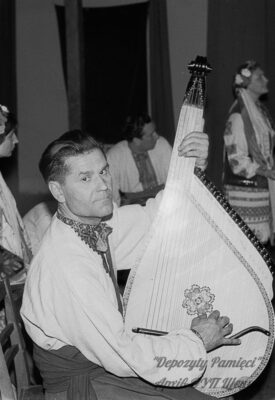
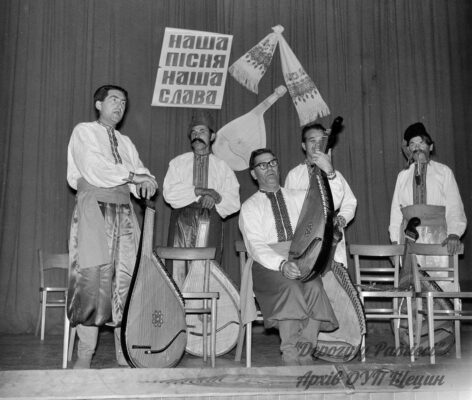
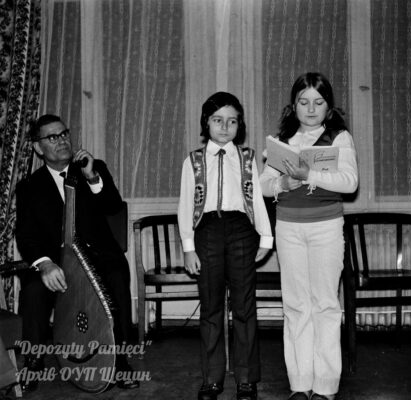
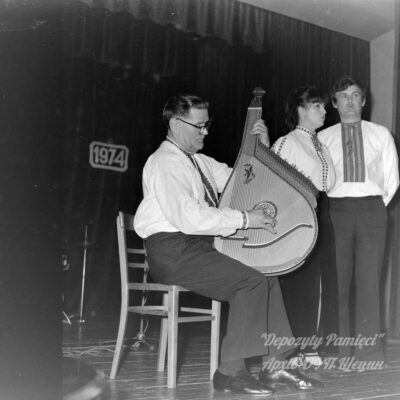

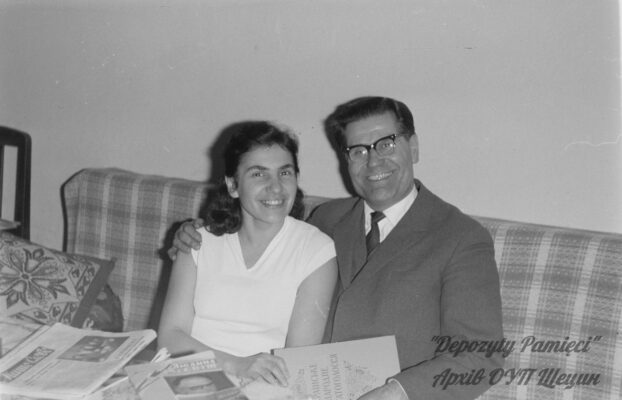

In 1963 he formed a male bandura ensemble called “Bandura” . Its first performance took place in April of 1963 during the IV regional USKT Conference in Szczecin and in Radio Szczecin. The following concert took place on May 19 in Trzebiatów. The ensemble performed at that time 7 Ukrainian folk music pieces. The performance of Szczecin bandura ansamble enjoyed great popularity and it was performed in front of the audience across Poland. The last performance of bandura assembly with the participation of Piotr Łachtiuk took place during the Shevchenko concert on March 16th 1966 in Koszalin. The choir accompanied the assembly. In 1966 Piotr Łachtiuk received in Trzebiatów award of Honored Ukrainian Cultural Activist. In 1968 Mr Łachtiuk arrived in Szczecin. Priest Włodzimierz Borowiec married Olga Łaska and Piotr Łachtiuk in my apartment. Since priest Borowiec knew the past of Pantalejmon Bondarczuk and knew, that he was residing in Poland thanks to illegal documents, he did not report the sacrament of marriage to his church superior in Roman Catholic Church in Gorzów.
Piotr Łachtiuk continued to study the art of music. He was in love with bandura and singing from an early age, which motivated him to practise. As he mentioned, he practised every day for several hours and composed music pieces for bandura. He looked for contacts with other performers, corresponded with other musicians from Ukraine in order to perfect his bandura skills. A particular role in his musical education was played by the Ukrainian artist Mikoła Kołesa. He used to say that bandura is the “soul and the heart of the Ukrainian nation”. Piotr Łachtiuk was very much involved in the organisational life of the Ukrainian minority. He held the secretary post in the Ukrainian Social and Cultural Association in Szczecin. He wrote regularly for “Nasze Słowo”. He led a number of bandura ensembles over the years and he was able to pass on the love for the instrument in every place he resided. He started to compose pieces for bandura, and in his repertuar there were over 200 pieces, 150 of which were recorded. They were sent to Canada and the USA.
Majority of the pieces performed had an original character, however he kept it a secret. A great support for his musical activity he received from his wife, with whom he spent 40 years. He revealed his real name to his wife after 36 years of their life together. As Olga Łaska recalls: “My husband said, thet his mother prayed for her to be his wife”. Piotr Łachtiuk passed away on 18th of October in 2001 in Szczecin. Until the very end he played his beloved instrument and his bandura was finally placed to rest in the glass display case in the Center of Ukrainian Culture.

